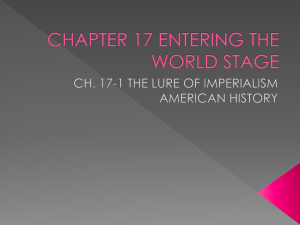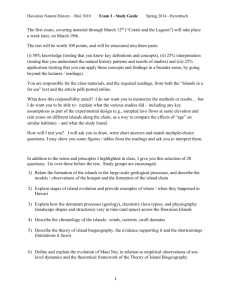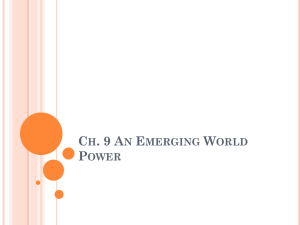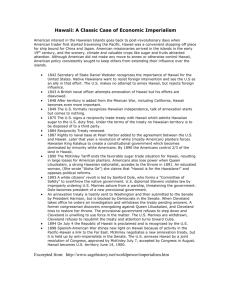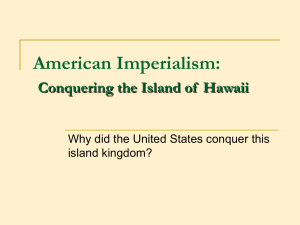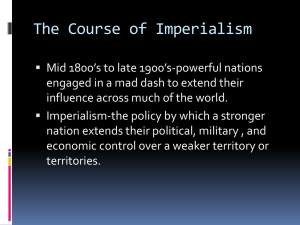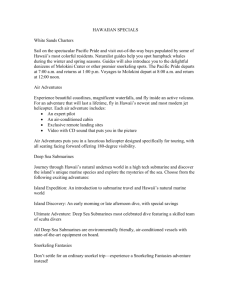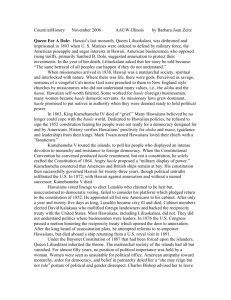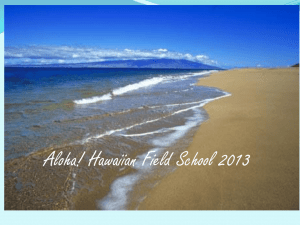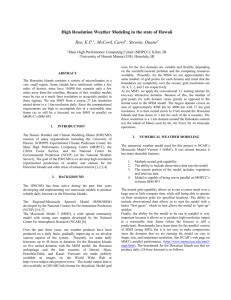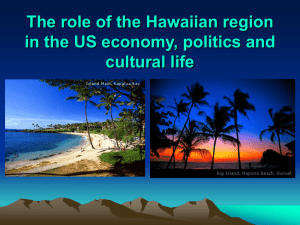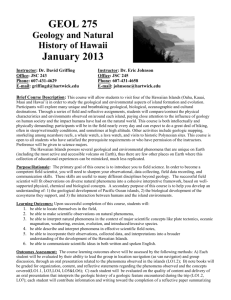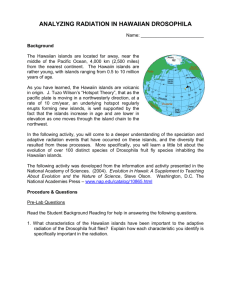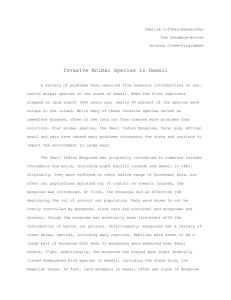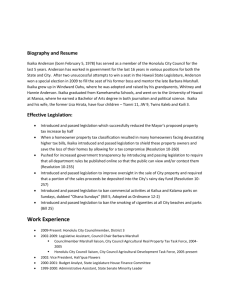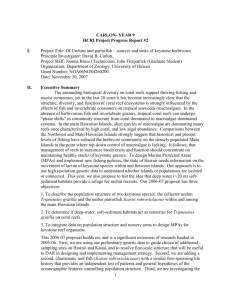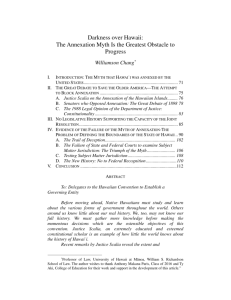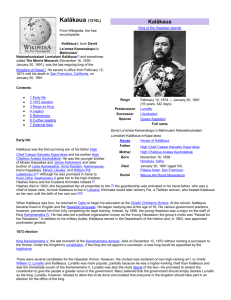Hawaii and the Pacific Islands
advertisement
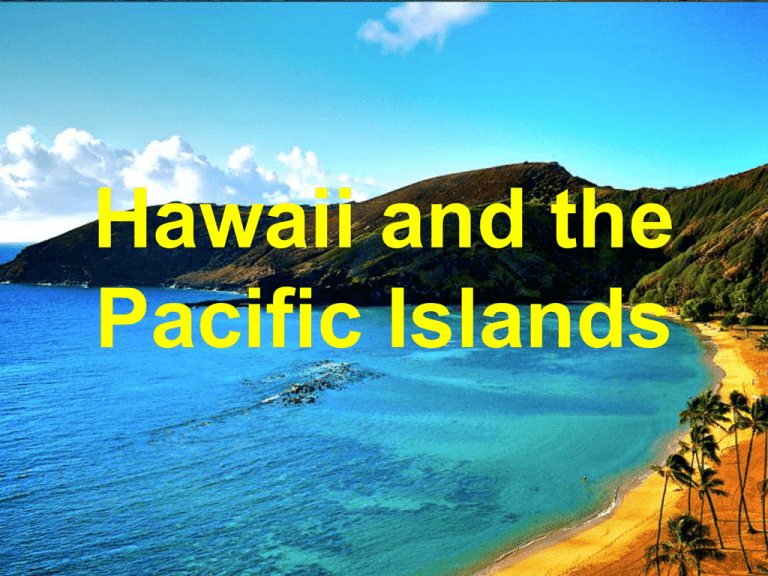
Hawaii and the Pacific Islands Early influence • Provisioning port on journey to China • Christian missionaries among first to settle - decimation of kapu & language - public schools - political influence • 1826: first Hawaiian-U.S. Treaty opens trade - whaling - sugarcane • 1842: U.S. formally recognizes Hawaiian government 1840’s • Autocracy constitutional monarchy with bicameral legislature, Constitution, Bill of Rights • Prime Minister C.P. Judd • Great Mahele: right of commoners to purchase land • Treaty of 1849: privileges for American citizens, economically important Reciprocity (1875) • Article I: lists goods to be imported to the United States duty-free sugar, bananas, hides, castor oil, plants • Article II: lists goods preferentially imported to Hawaii from the U.S. meats, metals, cotton… • Article IV gives Hawaii exclusivity on special trade status Bayonet Constitution • Renewal of Reciprocity Treaty in 1887 U.S. demands access to Pearl Harbor • King Kalakaua opposed; led to Bayonet Constitution • Revision to the Constitution transferring power to his cabinet • Granted American residents in Hawaii right to vote in elections • Forced Kalakaua to sign under threat of arms McKinley Tariff 1890 • Eliminated import taxes • Placed two cent bounty on domestic sugar • Ruined Hawaii’s advantage Queen Liliuokalani • Nationalist Leader • “Hawaii for Hawaiians” • Attempted New Constitution Overthrow of the Kingdom of Hawai’i • Coup led by Lorrin A. Thurston • Wilson attempted to protect the Queen • Policeman shot on January 17th 1893 Thurston Wilson Overthrow Cont. • Concern for American Residents in Honolulu • Companies of uniformed and well armed Marines to take up positions throughout Hawaii • Intimidated monarch not to resist • Public Law 103-105 Grover Cleveland Benjamin Harrison Change in Hawaii • 1893 annexation treaty negotiated and sent to Senate by President Benjamin Harrison • Withdrawn by Grover Cleveland in March --Sent James H. Blount to Hawaii to investigate • Provisional Government of Hawaii under Sanford Dole – Sought annexation – Proclaimed Hawaii a republic in 1894 Provisional Government Treaty Attempt • March 1897 new annexation treaty negotiated when Republicans under McKinley returned to power – Rejected by sugar producers and couldn’t get Senate majority William McKinley • Signed and submitted to U.S. Senate for ratification June 16, 1897 by McKinley Hawaiian Opposition • 1897 treaty effort blocked by newly-formed Hawaiian Patriotic League – petitioned the U.S. Congress in opposition of the treaty • "Petition Against Annexation" signed by 21,269 native Hawaiian people • left 46 Senators in favor, less than the 2/3 majority needed Annexation 1898 • Spanish America War 1898 shows strategic necessity of Hawaiian Islands • July 12, 1898 McKinley signed Newlands Resolution • Passed in Congress, annexing the islands 1898: A formal ceremony took place on the steps of 'Iolani Palace, where the Hawaiian flag was lowered and an American flag was raised. Guam • 1565- Brutal Spanish control • 1898- The Treaty of Paris ceded Guam to the United States • Naval control benefitted the island territory as the standard of life improved under the control of Captain Leary American Samoa • 1850s- The United States, Germany, and Great Britain showed interest in the settling the islands • 1878- The US got control of Pago Pago • 1889- 6 ships sunk in Apia Harbor and the Berlin Act was put into effect • 1899- The eastern half of the islands was ceded to the United States Midway • 18560 The Guano Islands Act granted American citizens the right to cease Midway Atoll • 1867- William H. Seward acquired the Midway Islands in the hope to expand the naval influence of the US

